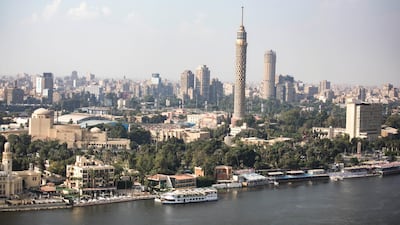The International Monetary Fund (IMF) expects to provide an additional $1.6 billion in financing to Egypt after its executive board approves the funding in the coming weeks.
The IMF has reached a staff-level agreement with the Egyptian authorities on the additional funding after a second and final review of the country's economic reform programme and a $5.2bn 12-month stand-by funding arrangement, the lender said on Tuesday.
The Washington-based fund had approved a $5.2bn loan for Egypt in June last year to help it cope with challenges posed by the Covid-19 pandemic and meet its budget deficit and balance of payments shortfalls.
“Over the past 12 months, the authorities’ strong performance and commitment helped achieve the programme’s objectives of maintaining macroeconomic stability during the pandemic while protecting necessary social and health spending and implementing key structural reforms,” the IMF said.
“Net international reserve accumulation and the primary balance exceeded the programme targets.”
Egypt is the only country in the Mena region whose economy grew last year, rather than contract amid the pandemic-induced lull, according to the World Bank. Its economy is expected to expand by 2.8 per cent in the fiscal year ending June 30, 2021 and rise 5.2 per cent during 2021-22 fiscal year, the IMF said.
However, “uncertainty remains against the backdrop of lingering pandemic-related risks”.
As of Wednesday, Egypt recorded over 256,000 coronavirus cases and more than 14,000 deaths. About 187,000 Covid-19 recoveries have also been recorded in country, according to the Worldometer that tracks the pandemic globally.
Egypt's supportive macro-economic policies are helping its economy. The Arab world’s most populous country has implemented reforms to improve fiscal transparency, governance, social protection and the business environment in the country. It has also focused on reducing debt vulnerabilities and creating more budget space for priority spending, the IMF said.
The fund also welcomed Egypt's move to increase investments in infrastructure, health and education in the next fiscal year.
The banking system in the country remains liquid, profitable and well capitalised, the IMF said.
The recently launched National Structural Reform Programme is an indication of the “government’s commitment to fostering human capital development, more efficient and transparent public institutions, a more competitive and export-oriented private sector and a greener economy”.
The lender also said Egypt should encourage more exports by further reducing trade impediments and allow more space for the private sector to operate in a competitive environment.


